When it comes to building parking lots, there aren’t a whole lot of options in terms of what kind of material you can use. The most commonly used materials are, of course, asphalt and concrete. Both types of materials come with different considerations to keep in mind, and you might be surprised to see how they stack up with alternative materials.
In case you’re planning on building a parking lot, let’s look at a concrete parking lot vs. asphalt in terms of performance, cost, and more:
Asphalt Parking Lots and Heat
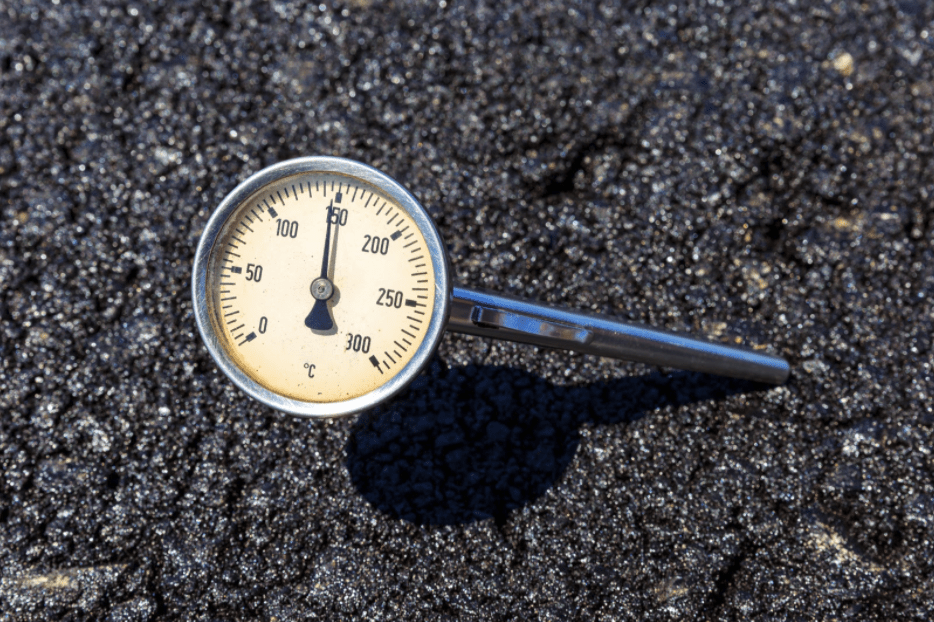
If you live in a hot climate, asphalt is likely going to cause you more problems than it’s worth. Asphalt gets sticky in hot temperatures because of its color and chemical composition. It attracts heat and reflects none of the UV rays, resulting in a sticky, oily parking lot that can leave stains and become too hot.
Asphalt is also stylistically limited, with your only color options being black with white or yellow lot lines. In addition, asphalt also has the added disadvantage of being relatively high-maintenance. Because of asphalt’s inability to handle fluctuating temperatures or high levels of traffic for too long, it requires regular maintenance work which is an added expense.
Asphalt isn’t all that cheap to install and is more harmful to the environment than other types of paving material. Being impervious, asphalt also requires some kind of drainage system for stormwater since it won’t allow any liquid to pass through. This means an even larger cost of installation and a longer wait-time as well.
As an impervious surface, asphalt is often restricted by code. You have to offset your impervious area with a expensive detention pond or drainage system. Not only does this cost you more, it takes upa good chunk of your property.
Concrete Has Its Own Problems
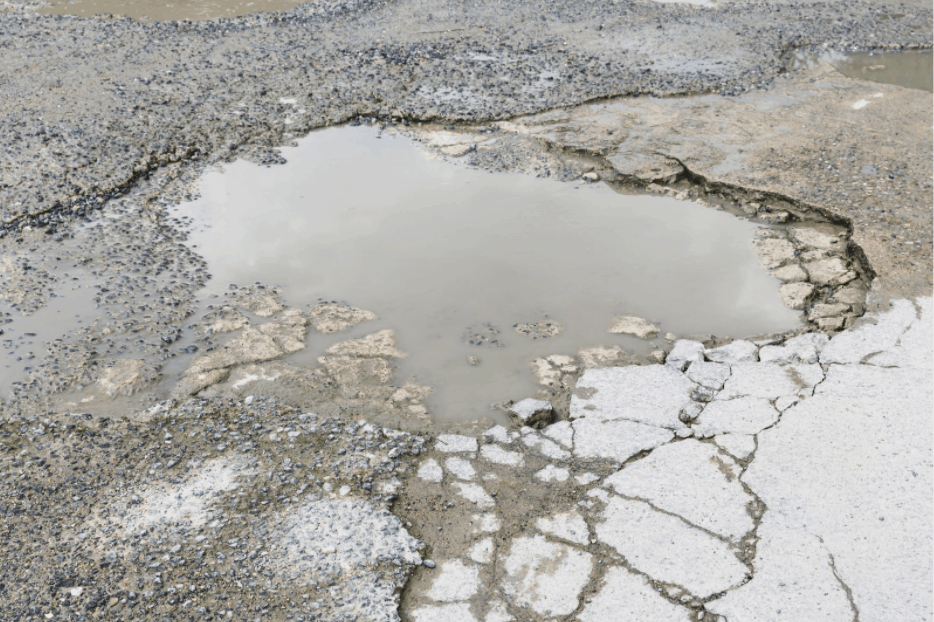
You might think that a concrete parking lot vs. asphalt is superior after reading the list of issues with asphalt, but concrete is far from perfect. As paving material, concrete can easily crack, chip and develop ruts over time.
It’s also not cheap in terms of installation and takes even longer to install than asphalt. The production of concrete is also harmful to the environment as the equipment and chemicals needed to produce and install it are not considered eco-friendly.
Also, just like with asphalt, concrete is impervious. This means it doesn’t allow water to pass through, so concrete parking lots need to have drainage systems installed just as asphalt ones do. These drainage systems are costly and take a lot of time to install properly. Your site may even require a detention pond.
Concrete, like asphalt, is restricted by code. The amount of land you can use for your building is reduced by the size of your impervious concrete parking..
Permeable Paving is a Better Alternative
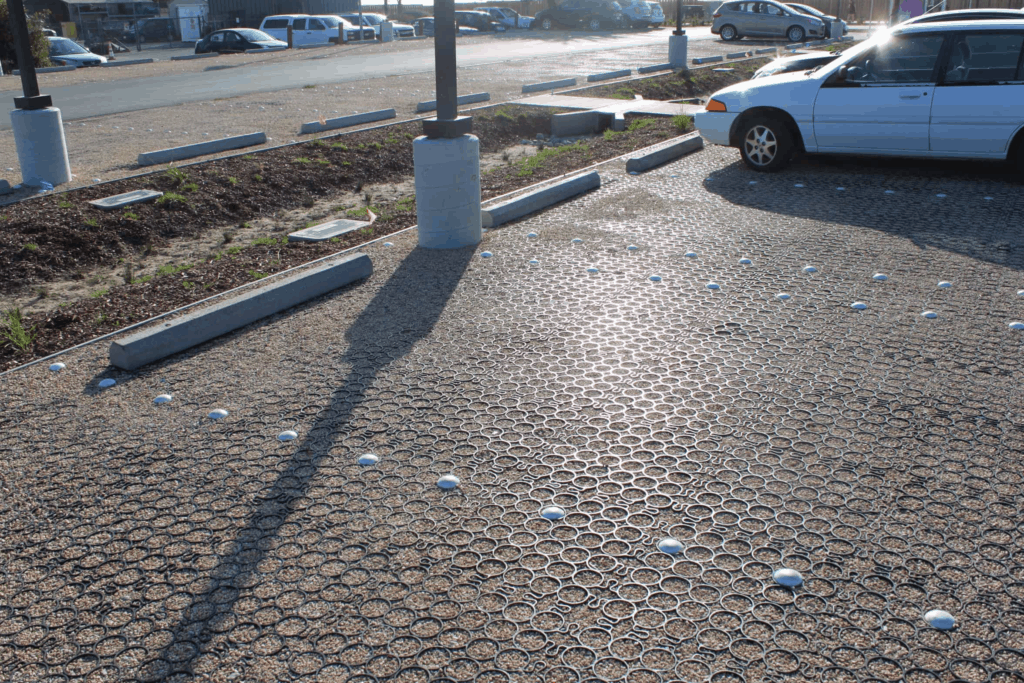
Permeable pavers like those produced by TRUEGRID are a far superior alternative to a concrete or asphalt parking lot. The main advantage that they hold over these two materials is that permeable pavers are 100% pervious.
This means they allow stormwater and other liquids to pass right through them and into the soil or a detention pond beneath. While they are permeable, TRUEGRID’s pavers also function just as well, if not better than concrete and asphalt, as a parking lot material.
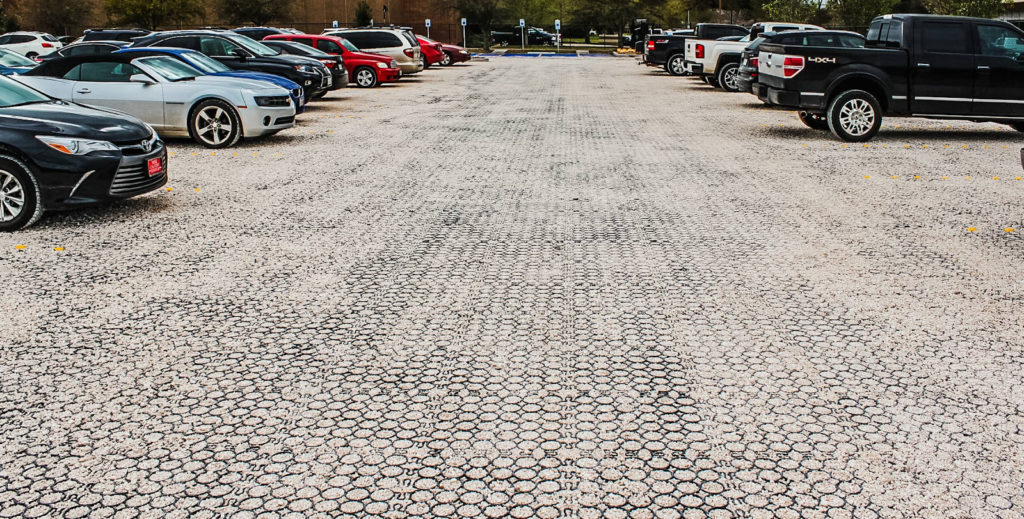
Made from 100% recycled plastic, these eco-friendly pavers are incredibly durable and require almost no maintenance once they’ve been installed. The installation process is very simple and takes no time at all compared to concrete and asphalt,. Depending on project size it may able to be completed in a single day. The interlocking pavers grids are laid over a level bed of angular gravel, and more gravel is then filled and leveled with a heavy roller . You can even make it a family or company event, since everyone can help.
This creates a parking lot with no need for added drainage systems,c an even eliminate the need for a detention pond, and one that can stand up far better to the everyday traffic that parking lots tend to see. TRUEGRID pavers are do not absorb heat like asphalt, and will not degrade or crack over time like concrete. A TRUEGRID lot will drain at over 1000 inches per hour with little or no maintenance for up to 60 years.
Make the Best Choice for Your Business
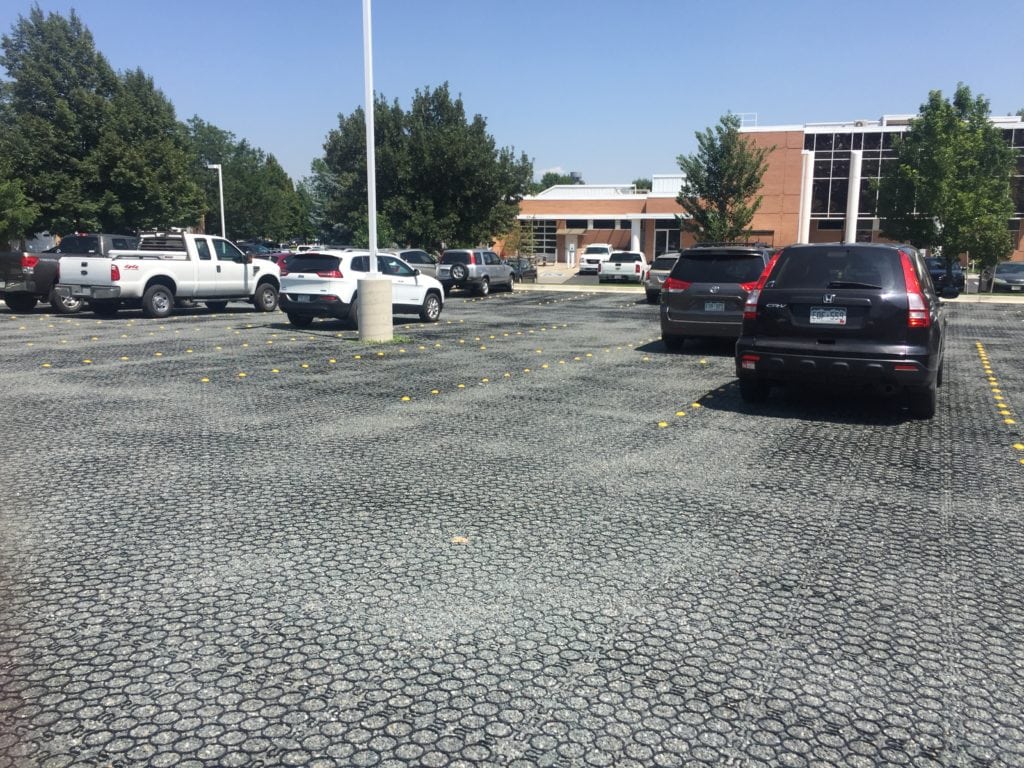
A parking lot is no small investment for a business owner. If you want a commercial parking lot that’s going to save you money while also performing better than concrete or asphalt, you should consider installing a permeable paver parking lot from TRUEGRID. It is better for the environment, and will save you time and money.
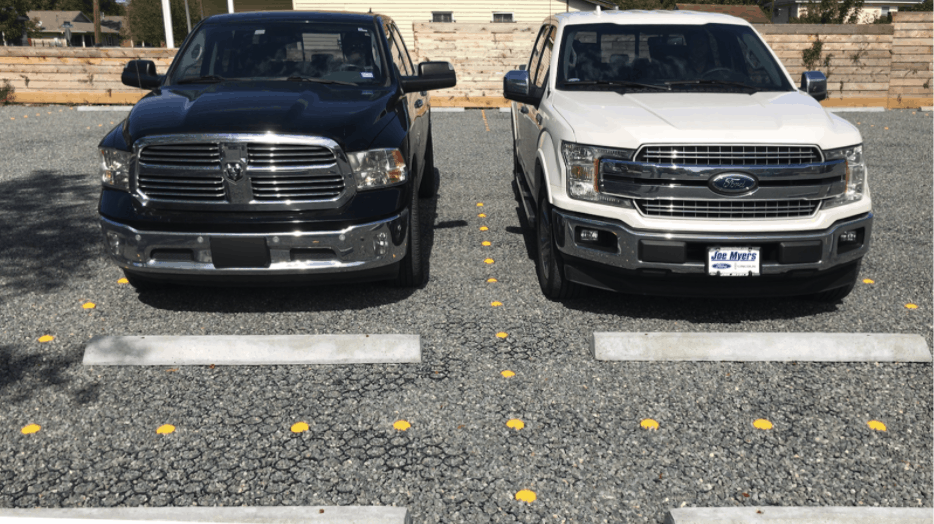
Because of the lack of a need for a drainage system, and the superior durability of the pavers themselves, permeable paver parking lots from TRUEGRID save business owners money both in the short-term and the long-term. If you expect to see regular traffic coming through your parking lot, you want to build it with materials that aren’t going to break down in the heat or become degraded from regular use.
With a lightning-fast installation process and almost no maintenance cost over the entire life of the parking lot, permeable pavers from TRUEGRID will give you a better looking and better-performing parking lot for less money.



